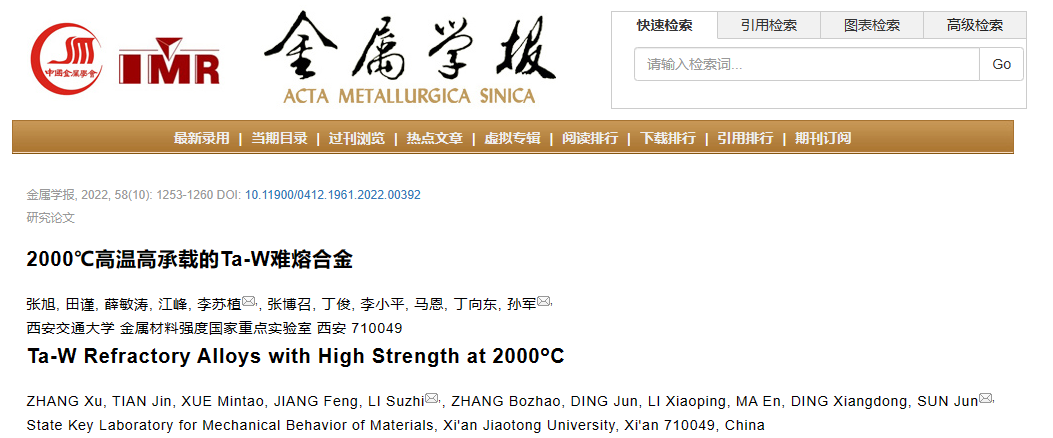
Advanced structural alloys that can withstand exceedingly high operating temperatures are in high demand. The high-temperature strength of these alloys needs to be above a certain level, above and beyond what can be offered by currently available alloys, while still having adequate room-temperature ductility to allow sufficient forming ability. In this study, Ta-W refractory alloys with W content ranging from 10% to 50% (atomic fraction) are prepared using arc-melting. All the Ta-W alloys are single-phase solid solutions with a bcc structure, and their average grain size decreases with increasing W content. Uniaxial compression tests are performed at both 25°C and 2000°C for the Ta-W alloys. The results suggest that the compressive yield strength of the Ta-W alloys increases with the W concentration at both temperatures, and they exhibit excellent compressive strength at high temperatures. In particular, the strength of the Ta-20%W alloy could reach as high as 236 MPa at 2000°C, a benchmark never reported for known alloys, while offering room-temperature shaping capability with a compressive strain over 40% at 25°C. A recent model based on screw dislocation activities in bcc concentrated solutions yields a reasonable prediction for the yield strength measured at both temperatures. Such Ta-W refractory alloys have the potential for load-bearing applications at extremely high temperatures.
Link:https://www.ams.org.cn/article/2022/0412-1961/0412-1961-2022-58-10-1253.shtml